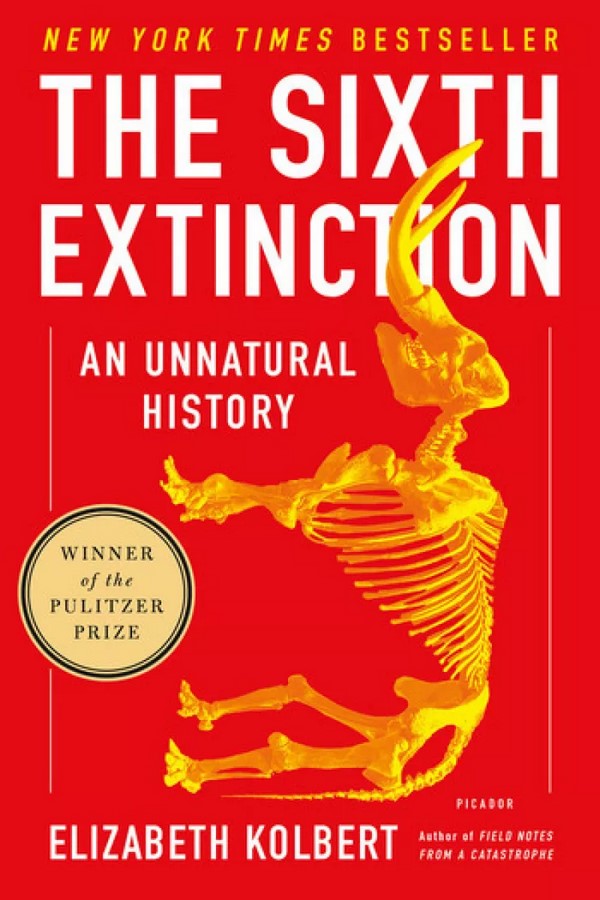As concerns about conservation and the climate crisis continue to mount, literature serves as a powerful tool for understanding the multifaceted dimensions of these pressing issues. From scientific analyses to personal narratives, the following selection of environmental books offers diverse perspectives on the challenges and solutions facing our planet.

Braiding Sweetgrass by Robin Wall Kimmerer
In “Braiding Sweetgrass,” Robin Wall Kimmerer, a member of the Citizen Potawatomi Nation, interweaves indigenous wisdom with scientific insight to explore humanity’s relationship with the natural world. Through narratives rooted in Potawatomi teachings, Kimmerer illuminates the intrinsic value of plants and animals, fostering a deeper ecological consciousness.
Merchants of Doubt by Naomi Oreskes and Erik M. Conway
“Merchants of Doubt” delves into the orchestrated campaigns of misinformation surrounding environmental issues, drawing parallels between the tactics employed in debates over global warming, tobacco, and other controversies. Authors Naomi Oreskes and Erik M. Conway uncover how vested interests manipulate public perception, hindering progress on critical environmental challenges.
The End of Nature by Bill McKibben
Published in 1989, “The End of Nature” by Bill McKibben heralds the transformation of the natural world by human activity, challenging the notion of wilderness untouched by human influence. McKibben’s seminal work calls for a reevaluation of humanity’s relationship with nature, advocating for a paradigm shift in our approach to environmental stewardship.
Silent Spring by Rachel Carson
Rachel Carson’s “Silent Spring” remains a seminal work in environmental literature, exposing the detrimental effects of pesticides, particularly DDT, on ecosystems and human health. Carson’s groundbreaking exposé catalyzed public awareness and policy changes, ultimately leading to the establishment of environmental protection agencies and regulations.
The Sixth Extinction: An Unnatural History by Elizabeth Kolbert
“The Sixth Extinction” by Elizabeth Kolbert examines the ongoing biodiversity crisis through the lens of past extinction events, attributing the current mass extinction to human activities. Kolbert’s meticulous research and compelling narratives shed light on the profound impact of human intervention on global ecosystems, urging urgent action to mitigate further biodiversity loss.
The Uninhabitable Earth by David Wallace-Wells
In “The Uninhabitable Earth,” David Wallace-Wells confronts the stark realities of climate change, presenting a sobering portrait of the potential consequences of inaction. Through meticulous analysis and vivid prose, Wallace-Wells elucidates the existential threats posed by climate change, emphasizing the imperative for immediate and decisive action to avert catastrophe.
Losing Earth by Nathaniel Rich
“Losing Earth” by Nathaniel Rich chronicles a pivotal decade in the history of climate change awareness, exploring the missed opportunities and political obstacles that impeded meaningful action. Rich’s narrative underscores the urgent need for collective action and underscores the pivotal role of advocacy and policy in addressing climate change.
Eating Animals by Jonathan Safran Foer
Jonathan Safran Foer’s “Eating Animals” examines the ethical, environmental, and health implications of meat consumption, challenging readers to reconsider their dietary choices. Through a blend of investigative journalism and personal reflection, Foer prompts readers to interrogate the consequences of industrial farming and advocate for more sustainable food systems.
An Inconvenient Truth by Al Gore
“An Inconvenient Truth” by former Vice President Al Gore combines scientific analysis with personal anecdotes to elucidate the urgent threat of climate change. Gore’s impassioned plea for environmental stewardship resonates with readers, underscoring the imperative for global cooperation and policy action to address climate change.
No One Is Too Small To Make A Difference by Greta Thunberg
“No One Is Too Small To Make A Difference” compiles a series of speeches by climate activist Greta Thunberg, inspiring readers to take action against climate change. Thunberg’s impassioned calls for environmental justice resonate with audiences worldwide, galvanizing a global movement for climate action.
From indigenous perspectives to scientific analyses, these environmental books offer invaluable insights into the complexities of conservation and the urgent need for collective action to address the climate crisis. As readers engage with these diverse narratives, they are empowered to become informed advocates for environmental sustainability and stewardship.